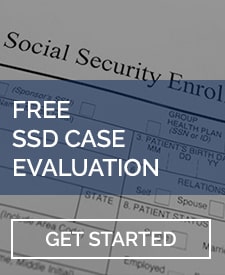Cystic fibrosis can be overwhelming, as you are suffering from a severe condition requiring a significant amount of medical treatment. The more severe your condition, the more likely the symptoms have a significant impact upon your ability to work, thus making you more likely to qualify for disability benefits. If you believe your diagnosed condition of cystic fibrosis is preventing you from working, you absolutely should apply for Social Security disability insurance (SSDI) benefits.
About Cystic Fibrosis
Cystic fibrosis is a genetic condition affecting the lungs and digestive system. To be born with cystic fibrosis, you must inherit two mutated copies of the CFTR gene, one from each parent. If only one copy is inherited, the individual is seen as a carrier of the mutated gene but not likely to suffer from cystic fibrosis.
In cases of cystic fibrosis, the body produces thick and sticky mucous that clogs the lungs and digestive system. This condition is progressive, causing persistent lung infections and difficulty with breathing over time. Individuals can be diagnosed with this condition at any age, from an infant up until death. As with most conditions, cystic fibrosis can range in severity from mild to the most severe. Individuals diagnosed with milder cases of cystic fibrosis have a longer life expectancy, with the oldest individual living today being 76 years old. The more severe your case of cystic fibrosis, the shorter your life span will likely be – though, importantly, being diagnosed with this condition is no longer thought to be terminal.
The typical symptoms of cystic fibrosis include salty-tasting skin; frequent coughing, wheezing, or pneumonia; difficulty breathing; poor weight gain; and diarrhea. If you are diagnosed with this condition, there are several treatment options available. Some treatments include antibiotics for chest infections, medicines to loosen mucous in the lungs, medicines that help to absorb food faster, and following a special diet. In the most severe cases, a lung transplant may be required.
How Does Cystic Fibrosis Qualify for Disability?
If you are suffering from respiratory or abdominal issues related to cystic fibrosis – issues affecting your ability to work, then an SSDI application is a step in the right direction for you financially. The Social Security Administration (SSA) considers cystic fibrosis to be a severe condition as a disability. In fact, cystic fibrosis is one of the SSA’s listed conditions that, if you are able to prove you meet the requirements, you will automatically be found disabled. The SSA listing for cystic fibrosis is Listing 3.04 and can be found here. The requirements criteria can be found in Table VII-A or VII-B and are outlined below.
Requirements for Disability for Cystic Fibrosis
- Show a forced expiratory volume less than or equal to a certain amount based upon your age, genera, and height without shoes. For example, if you are a female, age 27, 169 lbs, with a height of 5’6”, if you have an FEV of 1.85 or less, you will automatically be found disabled.
- Show exacerbations requiring three hospitalizations of any length within a 12-month time period and at least 30 days apart.
- Show spontaneous pneumothorax, secondary to cystic fibrosis, requiring chest tube placement.
- Show respiratory failure requiring invasive mechanical ventilation, noninvasive ventilation with BiPAP, or a combination of both treatments, for a continuous period of at least 48 hours, or for a continuous period of at least 2 hours if postoperatively.
- Show pulmonary hemorrhage requiring vascular embolization to control bleeding.
- Show a pulse oximetry level of 89% or less twice within a 12-month time period.
- Show you meet or equal a Social Security Listing by proving two exacerbations or complications within a 12-month period for either pulmonary exacerbation, pulmonary hemorrhage, weight loss requiring daily supplemental enteral nutrition for at least 90 days; or CFRD requiring daily insulin therapy for at least 90 consecutive days.
Typically, being found disabled based upon Listing 3.04 would require a medical opinion either from your own doctor or from one of the SSA’s doctors. The main reason being is that the testing required to prove this listing is quite complicated and requires a specialist to form an opinion.

Applying for Disability Benefits with Cystic Fibrosis
Seeking help from an experienced SSDI attorney is the quickest and least stressful way to undergo the SSDI benefits application process. Your SSDI attorney will not only file your application for you but also obtain your medical records, have direct contact with the SSA, and fight fiercely on your behalf to obtain the benefits you deserve. The best part is, there are no out-of-pocket costs. At the LaBovick Law Group, we only get paid for our work if we are able to obtain your SSDI benefits. There are no upfront costs and there is zero financial risks to you when applying for the program with our assistance. Contact us today to get started.




